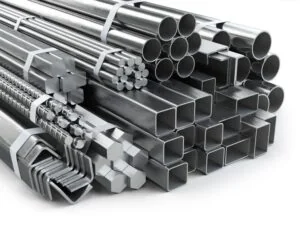BIS Certification for Aluminium conforming IS 7092 (PART1), 7092 (PART 2), IS 5484, IS 733, IS 5082 AND IS 1285
The Bureau of Indian Standards (BIS) plays a pivotal role in maintaining quality benchmarks for various products in India. One of the critical sectors under its purview is the aluminium industry. This article delves into the specifications outlined by BIS for different aluminium products, shedding light on the importance of adhering to these standards. Additionally, we will explore the role of Omega QMS Pvt Ltd in obtaining BIS Certification for aluminium products.

IS 7092 (PART 1):1992 – ALUMINIUM ALLOY TUBES FOR IRRIGATION PURPOSES – SPECIFICATION: PART 1 WELDED TUBES (SECOND REVISION)
This standard covers the requirement of Electric resistance welded aluminium alloy tubes used for irrigation ( including sprinkler irrigation ) purposes and suitable for a maximum working pressuere of 1 000 kN/m2 ( 10 kgf/cm2 ) for diameters up to and including 200 mm. Apart from dimensions and tolerances the standard specifies requirements for tensile strength, flattening test, hydrostatic pressure and chemical composition.
IS 7092 (PART 2):1987 – ALUMINIUM ALLOY TUBE FOR IRRIGATION PURPOSES, PART 2: EXTRUDED TUBE:
This standard covers the requirement of extruded aluminium alloy tubes used for irrigation purposes and suitable for a maximum working pressuere of 1 000 kN/m2 ( 10 kgf/cm2 ) for diameters up to and including 200 mm. Apart from dimensions and tolerances the standard specifies requirements for tensile strength, Drift expanding test, hydrostatic pressure test and chemical composition.
IS 5484:2023 – EC GRADE ALUMINIUM ROD PRODUCED BY CONTINUOUS CASTING AND ROLLING – SPECIFICATION
This standard covers the requirements for electrical conductor (EC) Grade aluminium redraw rods, between 6.5 mm to 15 mm in nominal diameter, produced by continuous casting and rolling for electrical conductors, cables and winding wires. Besides Dimensions the standard lays down requirements for ultimate tensile strength and elongation, resistivity and chemical composition
IS 733:1983 – WROUGHT ALUMINIUM AND ALUMINIUM ALLOY BARS, RODS AND SECTIONS (FOR GENERAL ENGINEERING PURPOSES)
This standard covers requirements for wrought aluminium and aluminium alloy bars, rods and sections for general engineering purposes. It provides specifications for chemical composition, mechanical properties, and dimensions, ensuring that these products meet the stringent requirements of various engineering applications.
IS 5082:1998 – WROUGHT ALUMINIUM AND ALUMINIUM ALLOY BARS, RODS, TUBES AND SECTIONS FOR ELECTRICAL PURPOSES
This standard specifies requirements for wrought aluminium and aluminium alloy bars, rods, tubes, sections, plates and sheets for electrical applications, prescribing their chemical composition, mechanical properties and electrical resistivity/conductivity. This standard is applicable to a) extruded bars and rods above 6 mm diameter; extruded angles, channels, other sections and profiles including tubes, hollow sections of thickness, 3 mm and above. b) rolled – plates, sheets of 3 mm and above thickness. Besides chemical composition the standard specifies requirements for tensile strength, 0.2 percent proof stress, elongation, electrical and resistivity at 200C.
IS 1285:2023 WROUGHTALUMINIUM AND ALUMINIUM ALLOYS – EXTRUDED ROUND TUBE AND HOLLOW SECTIONS FOR GENERAL ENGINEERING PURPOSES
This standard covers the requirements for wrought aluminium and aluminium alloy extrude round tubes and hollow sections for general engineering purposes. Besides dimensions and tolerances, the standard specifies mechaical properties and chemical composition.
QUALITY CONTROL ORDER (TECHNICAL REGULATION) ISSUED BY THE DEPARTMENT FOR PROMOTION OF INDUSTRY AND INTERNAL TRADE, MINISTRY OF COMMERCE AND INDUSTRY, GOVT. OF INDIA ON 25 SEPTEMBER 2023 FOR MANDATORY BIS CERTIFICATION
The DPIIT, Ministry of Commerce & Industry, Govt. of India, has issued an order, making it mandatory for all aluminum products mentioned above to be used in India, whether manufactured in India or imported from foreign countries, shall mandatorily carry the Standard Mark of the Bureau of Indian Standards under a valid BIS licence. In short, it has become obligatory for all the manufacturers of aluminum and aluminum alloy mentioned above, wherein in India or overseas, to immediately apply for BIS licence and obtain a valid BIS certification licence before that the last date of implementation of the order, i.e., 24 March 2024.
BIS CERTIFICATION SCHEME
The BIS Standards, IS 7092 (Part 1 and 2), IS 733, IS 1285, IS 5082 and IS 5484, establishes a comprehensive framework encompassing various quality parameters that fasteners must adhere to. The Bureau of Indian Standards Certification Scheme is a vital framework established by the Indian government to ensure the quality, safety, and reliability of products available in the market. This scheme aims to safeguard consumer interests by setting stringent benchmarks and guidelines that products must meet before they can be deemed compliant. BIS certification covers a wide range of industries and products, encompassing the entire gamut of industrial and manufacturing activity. Various steps involved in the BIS Certification process are enumerated below:
- Standard Identification: Manufacturers identify the relevant BIS standard that applies to their chosen product category. These standards outline the specific quality, safety, and performance requirements that the product must meet.
- Application Submission: Manufacturers submit an application for BIS certification to the Bureau of Indian Standards (BIS), providing details about the product, its specifications, and the desired certification mark.
- Factory Inspection: BIS conducts an inspection of the manufacturer’s production facility to assess the quality control processes, infrastructure, and adherence to relevant standards.
- Sample Testing: BIS collects samples of the product from the manufacturer for testing in authorized BIS laboratories or recognized testing centers. These tests evaluate various parameters specified by the BIS standard.
- Certification Decision: Based on the satisfactory test results and compliance with standards, BIS decides whether to grant certification to the product. If approved, the manufacturer is issued a BIS certification license.
- Regular Monitoring: BIS monitors the manufacturing process of certified products through periodic audits and market surveillance to ensure ongoing compliance with quality control processes and standards.
OMEGA QMS PVT. LTD. – PARTNERING FOR SUCCESS
In the pursuit of achieving BIS certification and maintaining the highest levels of product quality, Omega QMS Pvt. Ltd. emerges as an invaluable partner for manufacturers. Backed by a global presence and a stellar track record of successful collaborations with Fortune 500 companies, Omega QMS provides an extensive array of services designed to streamline the certification process and ensure compliance with industry standards.
- Expert Guidance: Omega brings together a team of seasoned experts who possess in-depth knowledge of regulatory requirements, industry best practices, and intricacies of certification process. These experts guide manufacturers through the complex landscape, offering insights and strategies to navigate the process efficiently.
- Testing and Validation: Omega assists manufacturers in planning and executing necessary tests and validations required for BIS certification.
- Documentation and Compliance: The journey toward BIS certification demands meticulous documentation of processes, materials, and testing procedures. Omega aids manufacturers in creating comprehensive and accurate documentation that aligns with BIS requirements, reducing the risk of errors and rejections.
- Audit Support: Omega prepares manufacturers for BIS audits, which are a crucial part of the certification process. With its expertise, the organization ensures that manufacturers are well-prepared for audits, addressing any issues that may arise and increasing the likelihood of a successful outcome.
- Customized Approach: Each manufacturer’s journey toward BIS certification is unique. Omega understands this and tailors its services to fit the specific needs, challenges, and goals of individual manufacturers, ensuring a personalized and effective approach.
- Global Experience: With presence in over 40 countries, Omega brings global experience to the table. This international exposure allows the organization to offer insights into varying regulatory environments and industry practices, enabling manufacturers to excel globally.
Omega QMS Pvt. Ltd. functions as a strategic partner for manufacturers aiming to achieve BIS Certification. Its multifaceted approach encompasses expert guidance, process control, testing and validation support, documentation assistance, audit preparation, training, and a global perspective. By collaborating with Omega, manufacturers gain a competitive edge in their pursuit of certification while upholding the highest standards of product quality and consumer satisfaction.
For more details you can reach out to Omega at info@globalomega.com
Adherence to BIS standards is imperative for businesses in the aluminium industry to ensure the quality, safety, and performance of their products. By obtaining BIS Certification through agencies like Omega QMS Pvt Ltd, businesses can demonstrate their dedication to upholding the highest industry standards, fostering credibility and trust in their products. This not only benefits the manufacturers but also assures consumers of the quality and reliability of the aluminium products they use.
